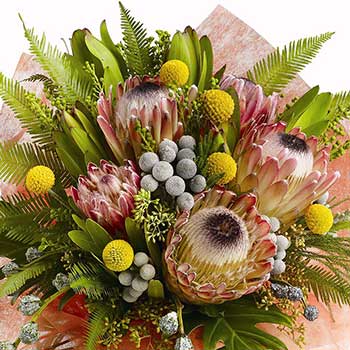“Let me tell you, my friend, I will be in the honeymoon phase until I leave this planet."
~Aaron Paul about Lauren Parsekian, People
Almanac: S.N. Behrman on novelists and playwrights
“The author of a well-received novel never knows whether his book, even if it sells, is also read. Nor does he know where his reader yawns, at what page he may have decided that he wants no more of it and throws it away in disgust. The novelist’s audience is invisible; the playwright’s right there with him. With a successful play the author is reviewed every night and the playwright can tell what kind of review he’s getting.”
~S.N. Behrman, People in a Diary: A Memoir
"Like a cold river flows/Surely to the warm sea/Darling, so it goes/Some things are meant to be."
–Elvis Presley, "Can't Help Falling in Love With You"
To another year of sharing sunsets and dreams. Wedding anniversary is a reminder that we are blessed ... as the best thing to hold onto in life is each other.
Warmest Wishes and Happy Anniversary!
Warmest Wishes and Happy Anniversary!
The secret of a happy marriage remains a secret. . . Love is life’s champagne. Pour me a glass for each year we’ve been married. It’s a celebration!
Many believe there is a grain of truth in every joke. (50 best novels)
My name is Mary Katherine Blackwood. I am eighteen years old, and I live with my sister Constance. I have often thought that with any luck at all I could have been born a werewolf, because the two middle fingers on both my hands are the same length, but I have had to be content with what I had. I dislike washing myself, and dogs, and noise. I like my sister Constance, and Richard Plantagenet, and Amanita phalloides, the death-cup mushroom. Everyone else in my family is dead.
My name is Mary Katherine Blackwood. I am eighteen years old, and I live with my sister Constance. I have often thought that with any luck at all I could have been born a werewolf, because the two middle fingers on both my hands are the same length, but I have had to be content with what I had. I dislike washing myself, and dogs, and noise. I like my sister Constance, and Richard Plantagenet, and Amanita phalloides, the death-cup mushroom. Everyone else in my family is dead.
Jane Caro, via
sbs.com.au
Women like Aunt Lydia
exist and have always existed. In the show she is an enforcer; in real life, we
can recognise her as the moral campaigner.
Vienna feeds the imagination. Sydney and Melbourne? Not so much
Sydney and Melbourne have been rated below Vienna in a poll about "the world’s most liveable cities". I’m afraid I have to support that poll’s conclusion.
TONIGHT, ON JETSONS AFTER DARK: Robot pole dancers to debut at French nightclub.
Brain and sex
Sydney Story about Botox
My own luck or misfortune has been to discover that 39 years ago I landed in Sydney in my metaphorical nappies without a language, family or friends ... Fast forward to 2007 and new space for adventure opened ...
This would explain why metafiction appeals to me, as it seeks implicitly the specifics of writing's self-disclosure. In Gabriel Josipovici's story The Hand of God, Victor, a prolific young author with a promising career, suddenly abandons writing because one day sitting at his desk in an attic room he feels himself falling from the window. He realises it is the end and accepts his fate, even feeling some relief, but, before he hits the ground, he is grabbed by a hand and returned to his desk. It was the hand of God, he says, and now that he knows he cannot fall without being caught, there is no point in going on.
The death of one writer is the death of all.
Victor's fall is what Krzysztof Michalski identifies as a revelation of eternity, defined not as the opposite of time but its essence, an "irremediable fissure" or interval in life such as death and love interrupting the continuity of lived time, something always present, characterising our everyday lives but obscured by habit.
In this interval, briefer than any moment one can measure, in this crack, this fissure, this tear—in the blink of an eye—everything is left to question, and a chance for a new beginning arises. This is "eternity." [Translated by Benjamin Paloff]If God's hand revealed to Victor that what he sought in writing is present throughout each day of his life, then pouring out literary works is at best superfluous and at worst a pathological negation of life: "to fill this gap with concepts, to patch the fracture of every moment with some piece of knowledge, to remove that internal diversification of life with the help of some truth underlying it, and thus to render our lives consistent and comprehensible. It is precisely this pathology that Nietzsche calls 'nihilism'."
The new Stripe Press book is Bailey Richardson, Kevin Huynh, and Kai Elmer Sotto, Get Together: How to build a community with your people, a how-to guide.
The Turkish Grandmother Who Inspired Theatre To Change The World

Her village doesn’t have a stage, so she gathers her performers under a walnut tree in her garden for rehearsals while they do their domestic chores. Her love of theatre is apparently contagious. “When I see Ummiye calling me on my mobile, I come running,” one of her actresses says. And people in other parts of the country want a piece of the action, issuing invitations on social media for the group to perform locally. – BBC
On the death of book blogging (nothing unhappy)
The Indie Book Blog Is Dead says The Vulture, a commerical culturesite I may or may not have seen before – they all look and sound the same – focusing on another commercial culturesite that looks and sounds pretty much the same but one I had definitely seen before though had never considered to be a book blog, which has been sold to another commercial culturesite, signalling, apparently, the end of indie book blogs, a distinguishing phrase that stood out – independent of what, I wondered; any feeling for literature?
The article prompted a bemused shrug from Anthony as he celebrated ten years of Time's Flow Stemmed, a brilliant and cutting response from Juliana of The Blank Garden and, most recently,Flowerville's reflections on why she continues to blog after all these years. I've written about the form a couple of times in The beginning of something and A blog comes to one in the dark, so I repeat myself now only to observe that such repetition indicates why book blogging maintains itself in a state of precarity: it offers an infinite and apparently meaningless freedom. It is like the novel in this sense and, like a novelist who embraces genre, the blogger can constrain themself by mimicking the culturesites with enthusiasm for new publications, offering consumer reports, prizechat and local agitations about diversity, but the longer one pursues such writing, the more nagging questions or feelings present themselves and demand to be explored.
"I understand less than I thought I knew about literature at the time" says Anthony looking back at his first post, echoing my own experience. In the early days especially I was contemptuous of the prevailing literary scene and impatient for it to change direction, until I realised I needed to do that myself. Pursuing questions about the strange familiarity of literature – pursuing one's ignorance! – is not to be found on respectable platforms, so no wonder The Vulture chooses to mention only those bloggers who have moved on, as if blogging is only an unpaid internship on more familiar career path; profitability is the guiding light. Meanwhile, the book blogger looks into the night sky to find a billion guiding lights engulfed in darkness.
“When one heart of happiness closes, another opens, but often we look so long at the closed heart that we do not see the one that has been opened for us.”
The article prompted a bemused shrug from Anthony as he celebrated ten years of Time's Flow Stemmed, a brilliant and cutting response from Juliana of The Blank Garden and, most recently,Flowerville's reflections on why she continues to blog after all these years. I've written about the form a couple of times in The beginning of something and A blog comes to one in the dark, so I repeat myself now only to observe that such repetition indicates why book blogging maintains itself in a state of precarity: it offers an infinite and apparently meaningless freedom. It is like the novel in this sense and, like a novelist who embraces genre, the blogger can constrain themself by mimicking the culturesites with enthusiasm for new publications, offering consumer reports, prizechat and local agitations about diversity, but the longer one pursues such writing, the more nagging questions or feelings present themselves and demand to be explored.
"I understand less than I thought I knew about literature at the time" says Anthony looking back at his first post, echoing my own experience. In the early days especially I was contemptuous of the prevailing literary scene and impatient for it to change direction, until I realised I needed to do that myself. Pursuing questions about the strange familiarity of literature – pursuing one's ignorance! – is not to be found on respectable platforms, so no wonder The Vulture chooses to mention only those bloggers who have moved on, as if blogging is only an unpaid internship on more familiar career path; profitability is the guiding light. Meanwhile, the book blogger looks into the night sky to find a billion guiding lights engulfed in darkness.
Kathryn Francis, via The
Conversation
While consuming
alcohol might affect our empathy, it doesn’t necessarily change our moral
standards.“When one heart of happiness closes, another opens, but often we look so long at the closed heart that we do not see the one that has been opened for us.”


